Description
ABSTRACT
Income Tax Exemption for Small Companies in Nigeria and the Albatross of Incongruous Provisions in The Finance Act
Cyril Ikechukwu Obika*
The Finance Act has variously defined what constitutes a small company, which is a company that earns an annual gross turnover of N25million naira or less. The companies that fall into the above threshold are exempted from the payment of Companies Income Tax (CIT), Education Tax (EDT) as stipulated in the Tertiary Education Trust Fund (Establishment, etc.) Act on their income and profit at the end of a relevant accounting year and Value Added Tax (VAT) obligations. However, it is not until the tax year that its status as to whether it qualified to be classified under the category of small companies can be determined and hence, the tax liability to companies income tax, VAT returns, etc., based on the preceding year basis principle (PYB). What happens if the company has suffered withholding tax deductions on its transactions or incomes over this period, thereby eating deep and depleting its cash flow for conducting its business activities? Are they entitled to a refund and how fast can the Federal Inland Revenue Services (FIRS) effect such a refund? Are they entitled to interest payment on the withheld sum? The same question and issues raised above apply to the input VAT incurred by the company in the course of its operations or economic activities.
Keywords: Income tax, Small companies, Withholding tax regime, VAT, Finance Act
INTRODUCTION
The Finance Act, 2020 (Finance Act)1 was assented to, on 31 December 2020, by the President of the Federal Republic of Nigeria, Muhammadu Buhari, GCFR. The Act took effect from 1 January 2021 or such other date that shall be indicated by the National Assembly by law (or by Presidential Order) as stipulated in the Act.2 The Act amended the provisions of fourteen (14) Acts, including some provisions of the Companies Income Tax Act (CITA),3 Industrial Development (Income Tax Relief) Act,4 etc. The Finance Act further reinforced in its provisions, expressly and implied by the exemption of small-sized companies from companies income tax, Value Added Tax,5 Education Tax6 and by necessary implication non-liability to withholding tax regime. Although the CITA has classified a small company as one with an annual gross turnover of N25million naira or less, there are incongruous provisions in other related laws dealing on taxation of small companies that have used a different threshold, as will be discussed in the work.
* PhD, LL.M, ACTI, ACIArb (UK), HOD, International Law & Jurisprudence, and Lecturer, Faculty of Law, Enugu State University of Science & Technology (ESUT), Enugu State. Email: cy*********@******du.ng +234 803 500 1837
- Finance Act, 2020, s 81.
- Finance Act, s 80.
- Cap C21 LFN 2004 (as amended in 2020).
- Cap I LFN 2004 (as amended by the Finance Act, 2020).
- s 15 of the VAT Act as amended by s 38 of the Finance Act, 2019.
- s 1 (2) of the Tertiary Education Trust Fund (Establishment, etc.) Act, 2019, as amended by s 34 of the
Finance Act 2020

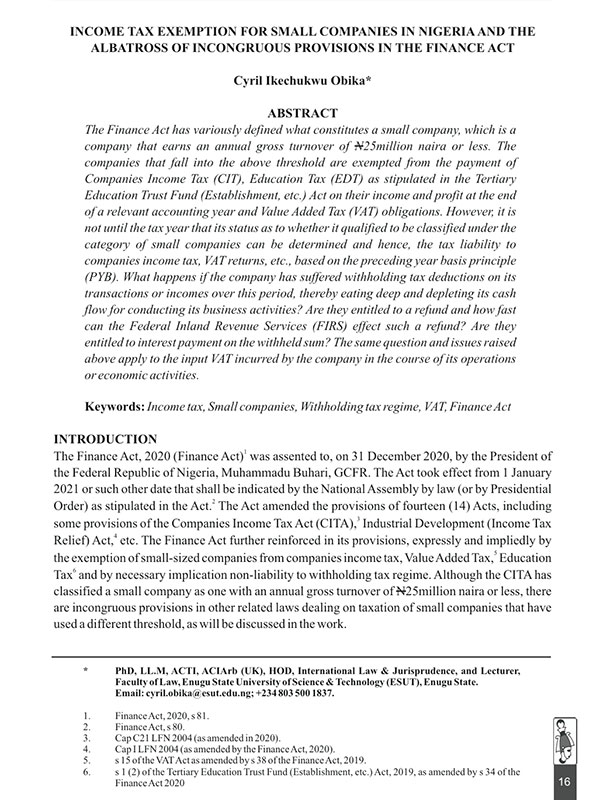
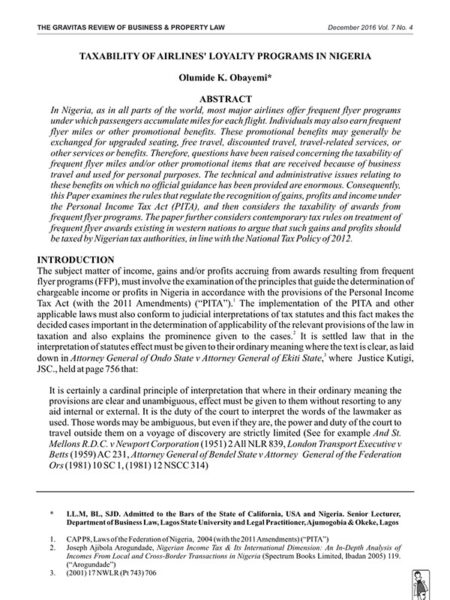
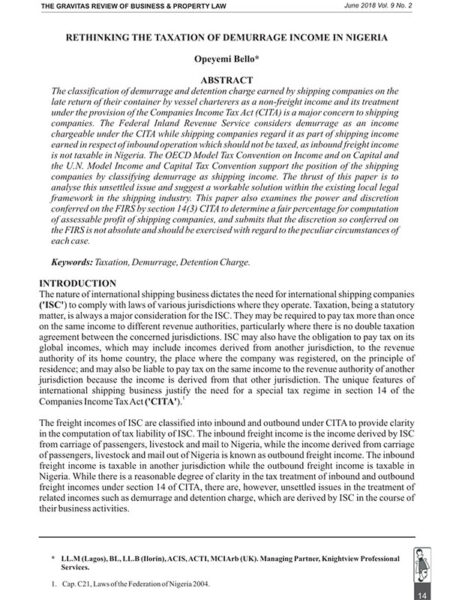
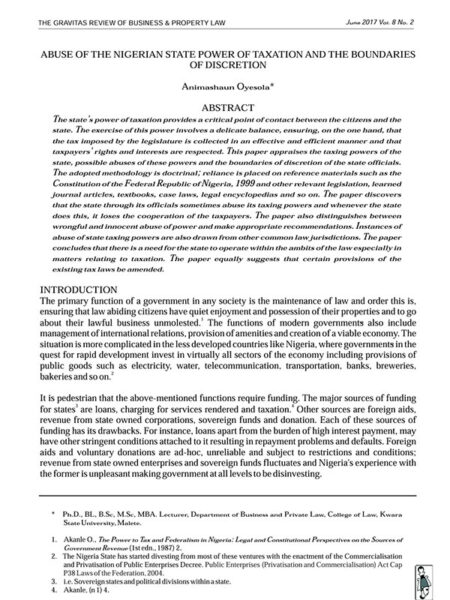
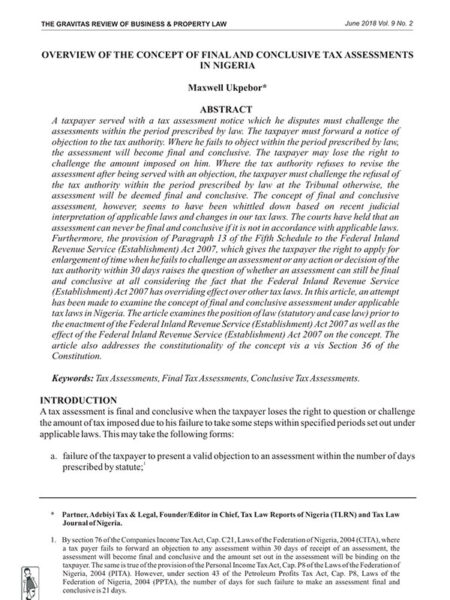


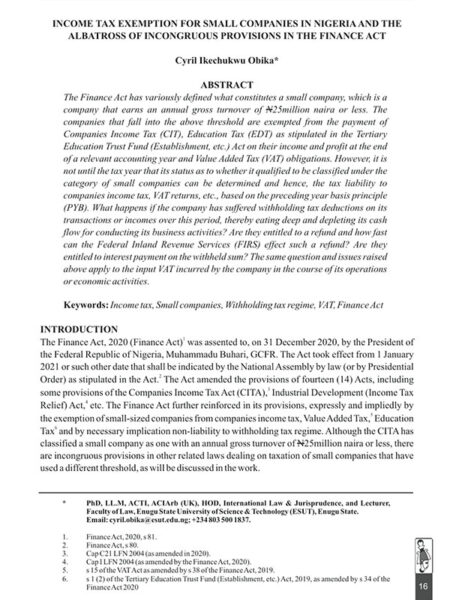
Reviews
There are no reviews yet.